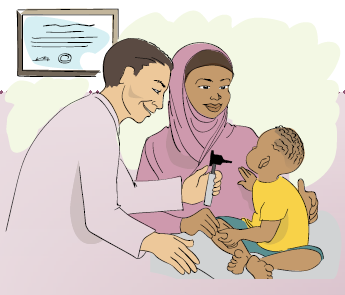Go Ahead and Get Bored: Why is Play so Important?
Why is Play so Important?
“According to experts, play is our best resource for family bonding and for parents and children to get to know each other better.”
Shhh. Don’t tell anyone. I’m practicing doing nothing on purpose. If I can get really good at doing “no thing,” I can discover the gifts that come from the stillness and quiet. Then, I can impart that skill to my children.
and quiet. Then, I can impart that skill to my children.
Melissa Bernstein, from the toy company Melissa & Doug, spoke about “Giving Children the Gift of Boredom” at the US Play Coalition’s annual conference. She encouraged doing “nothing” and how there’s “power in boredom” because finding ways to fill time sparks imagination.
Our culture calls us to fill every second of our day with something. What is this constant busyness doing to us? What is it doing to our children?
We’ve become a society that’s exhausted, on edge and emotionally overspent. We’re afraid of missing out or being left behind. We’re lonely, isolated and insecure. According to Bernstein, getting bored is the best choice anyone can make for themselves and their children. Boredom reduces stress, increases creativity and inspires an overall sense of well-being.
As an adult, you must first learn to teach your children what you have learned. Make sense? The following are four critical steps for you to learn about doing nothing:
- Set aside time for nothing. You can be in nature with no purpose other than to be present. Sit in a favorite chair and just enjoy the quiet.
- Take advantage of those in-between moments and try doing nothing. Enjoy silence or relaxing music instead of cramming in a podcast during your daily commute or before you start work.
- Permit yourself to daydream. Positive, constructive daydreaming is purposefully unfocused time. It gives your brain a chance to reflect and problem-solve.
- Bring back play. What do you enjoy doing for fun? Give yourself time to do it. Laugh. Connect with your unique-to-you joys.
If you want to get ahead, boredom is how to do it without compromising your health. Gift yourself a more attuned life to who you are and want to become.
Embracing boredom is a discipline that takes practice and courage. Setting aside the time and sitting in the “no-thing-ness” will be difficult initially, but the effort will revive your soul with each new day. This is a lifelong pursuit, so don’t wait to pass this gem on to the next generation. Your children need to get bored as soon as possible.
You’ve likely heard the “I’m bored” cry from your children more than once. Moreover, they will probably want you to fix the situation by filling up their day with activities, ideas or a screen.
Don’t do it.
Resist.
“Doing nothing often leads to the very best of something,” said Winnie the Pooh.
Instead, give them the gift that will serve them for the rest of their lives—give them the power to own the space in their day. Yes, I suggest you provide them with space in their day instead of filling it up for them. This gives your children a blank canvas to paint for themselves. They learn to own their own thoughts and decisions. Children explore what they want to know more fully by choosing for themselves. Through self-driven discovery, they are introduced to the joy of exploring something for themselves.
How does play affect child development?
While teachers and providers may light the spark of learning through fun activities or introduce them to something interesting, free time to play fans the flame of learning more. This space allows children to make choices and helps them process their emotions and experiences. It’s easy to ignore a feeling or a troubling experience when presented with distraction after distraction. However, open space gives them time to think through, sort out and grow from the past instead of bottling it up (like many adults still do). That time sitting alone will help with their emotional regulation and teach children to become self-initiators.
Be forewarned–your children will not like it at all. They’ll use every tactic to make you the fixer. It takes practice and patience. However, they will take another step toward their own ideas, thoughts and dreams every time they endure the tension. Over time, their inner superhero will amaze you. Children have creativity and passion ready to be unearthed. That “nothing” time will look different for each person, but the benefits are far-reaching.
How do children learn to cope with stress through play?
According to the Lego Foundation, research shows a link between play and children’s ability to understand and cope with the demands of their environment, respond to challenges with creative problem solving and manage their anxiety in stressful situations. Increasing spaces and opportunities for quality play in children’s daily lives and contexts—at home, in school and public areas—provides them with ways to channel negative emotions and practice strategies to overcome stress, the Lego Foundation added. So, go ahead and play or just get bored!
Check out the resources below, the Resource Page, Family Engagement Collection or Family Activities Collection, to learn more about the benefits of “PLAY Time,” ideas and activities that promote play and how to keep children active.
-
- Learning to Cope through Play (research)
- Family Challenges Can Keep Your Bored Children Busy (article)
- Toy Safety Tips (tip sheet)
- Playground Safety Tips (tip sheet)
- I Did Nothing Today: 5 Tips to Get More Details from Children (article)



